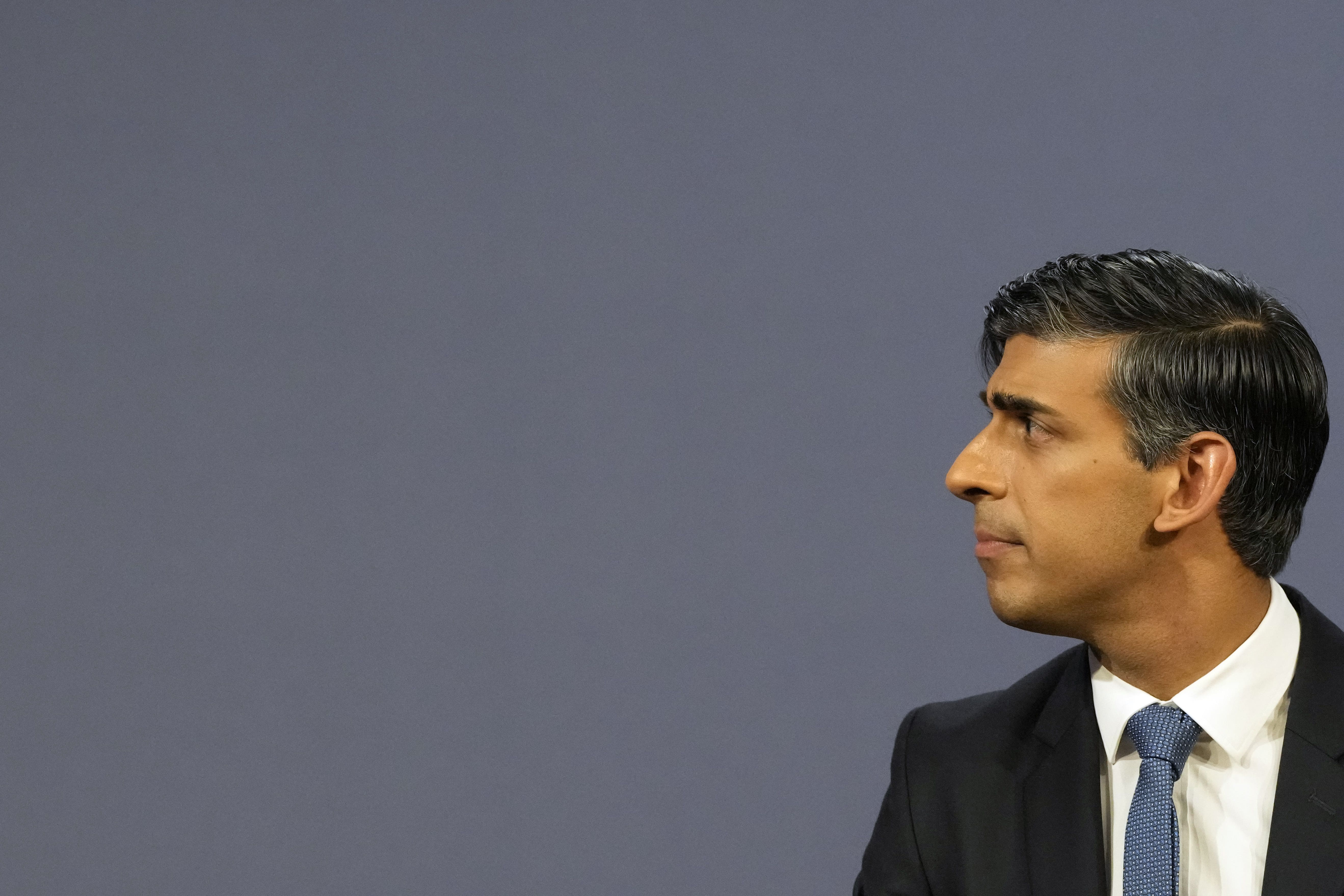Banks should not close accounts because of people’s views, says Rishi Sunak
The Prime Minister spoke after the furore over Nigel Farage’s claims that his account was closed for political reasons.

Your support helps us to tell the story
This election is still a dead heat, according to most polls. In a fight with such wafer-thin margins, we need reporters on the ground talking to the people Trump and Harris are courting. Your support allows us to keep sending journalists to the story.
The Independent is trusted by 27 million Americans from across the entire political spectrum every month. Unlike many other quality news outlets, we choose not to lock you out of our reporting and analysis with paywalls. But quality journalism must still be paid for.
Help us keep bring these critical stories to light. Your support makes all the difference.
Banks should not be allowed to close customers’ accounts because of their views, Rishi Sunak has said.
The Prime Minister said the right to free speech had to be respected “and that should not be an excuse to close anyone’s account”.
Mr Sunak was speaking after reports about the accounts of outspoken figures including Nigel Farage being closed.
We have to respect people’s right to free speech and that should not be an excuse to close anyone’s account
The Prime Minister told broadcasters: “The Chancellor has been very clear about this and spoken to the regulator.
“Obviously, we have to respect people’s right to free speech and that should not be an excuse to close anyone’s account and that’s not what we would expect.”
Mr Farage has accused prestigious private bank Coutts of being “dishonest” amid the dispute over whether his bank account was closed because of his political views.
The former leader of the UK Independence Party (Ukip) said his account with the high-net-worth bank had been closed and he was refused accounts with other banks for political reasons.
It followed a report from the BBC suggesting the Brexit leader fell below the financial threshold needed to hold an account with Coutts.
Coutts requires its customers to borrow or invest at least £1 million or save at least £3 million, according to an eligibility questionnaire on its website.
But Mr Farage, who is a presenter on the GB News channel, said “at no point in the last 10 years” did the bank give him a minimum threshold, and he has “more money sitting on a current account” than before.
He said he was then offered a standard account with NatWest, which owns Coutts, but only after speaking publicly about the issue last Thursday.
Mr Farage said in a video posted on Twitter: “They are telling the press I don’t meet their wealth threshold.
“Well, they never mentioned that before in the previous 10 years. The worst of the story is, they denied to me on the phone on Friday I was a PEP (politically exposed person).
“That is the reason Coutts will not have me, and Coutts are, frankly, being very, very dishonest indeed.”
He added that nine other banks had refused him on the basis of being treated as a PEP.
This refers to someone who holds high public office in the UK or overseas, or their family members, meaning financial institutions can treat their accounts with extra due diligence.
PEPs could pose more of a risk of abusing their public office position for personal gain, such as by making or accepting bribes, according to guidance by the Financial Conduct Authority (FCA).
The Government is looking into whether banks are closing people’s accounts over their political views, sparking disputes over whether freedom of speech is being “denied” by financial services firms.
It would be a serious concern if financial services were being denied to those exercising the right to lawful free speech
The Treasury said it was already looking into whether banks and regulators were being too rigorous in how they handle PEPs, and making sure that UK-based politicians were being treated as less risky individuals than those in other countries.
A Treasury spokesman said: “It would be a serious concern if financial services were being denied to those exercising the right to lawful free speech.
“We are already looking into this issue and have passed a law that requires the FCA to review how banks treat politically exposed persons, so we can strike the right balance between the customer’s right to free speech and the bank’s right to manage commercial risk.”
It has asked the FCA to review whether financial institutions are meeting its guidance on PEPs, and whether the guidance needs to be updated.
NatWest declined to comment on Mr Farage’s claims.